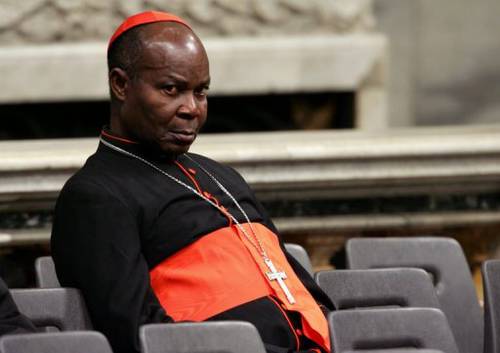
Dear Mr. President,
We read from the media the admonition to religious and traditional rulers at a recent interfaith conference in Abuja. You advised them to refrain from partisan politics so as not to lose the esteem people have for them.
Your admonition was in order, and for this you deserve commendation. Religious and traditional rulers should be agents of unity and reconciliation especially in this era of dangerously divisive politics heightened by the incivility that comes with every election season in Nigeria. Religious and traditional rulers are like parents who should unite and not divide their families. However, the merits of your admonition should not make the discerning lose sight of some related issues.
Mr. President, we are in danger in Nigeria today because politics is separated from morality. Instead of working for the common good our politicians, with very few exceptions, are working for their selfish interests. Their primary objective is how to get into power and how to remain in power. This kind of politics is a breach of security and an impediment to development. When politicians divorce politics from morality, it would be irresponsible on the part of religious and traditional leaders who ought to be custodians of values to leave politicians to set this country ablaze.
In a Nigeria that was once set ablaze by a quarrel between two politicians, a quarrel that led Nigeria into a bloody civil war, religious leaders who are able to broker peace have the responsibility to at least ensure that they reconcile. Some of us, despite being threatened and maligned by some media aides, will continue to engage politicians to ensure that they do not take Nigeria back to 1966-70. That is why some of us speak. As religious and traditional leaders, we must speak for what is true, what is good, and what promotes peaceful coexistence. Unfortunately, when some of us do so and it does not favour some politicians, that is when they say we are partisan.
Just as one may not deny that there are politicians who act for the sake of the common good, one may not deny that the interventions of some religious leaders betray a self-serving agenda. Every religious leader must examine his conscience. But in all this, those who claim to prophesy good tidings for politicians, despite the misconduct of the politicians in question receive accolades while those who speak the truth to power for the sake of the common good are maligned by media aides in the Presidency and in the offices of State Governors. That is not only partisan, it is hypocritical.
You warned that religious and traditional leaders risk losing their esteem if they continue to be “partisan.” Again, you are right. It is not the vocation of religious leaders to campaign for or against any political party or candidate. It is rather their role to provide a much-needed critique of parties, candidates and ideologies. In the process of doing so, fortunes of parties and their candidates may be affected at the polls. If to be an artisan of peace is to be partisan, then we plead guilty.
Your speeches, actions and policies touch the life of the man or woman worshipping in our churches and mosques, bringing them relief or pain. Where they bring relief, they will be commended. Where they bring pain, they will be condemned. Such has been the vocation of prophets. True prophets do not tremble before kings. Kings tremble before them. Many have been persecuted or maligned. Some have even been assassinated because of that. But because the message is greater than the messenger, they cannot but speak out. That is why, dear Mr. President, a religious leader who is unprepared to risk his reputation and comfort for the sake of the common good does not fit the bill.
• His Eminence, Okogie wrote from Lagos.
END

Be the first to comment